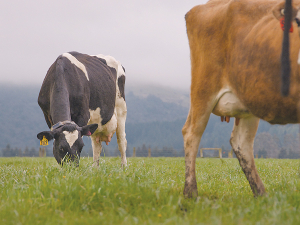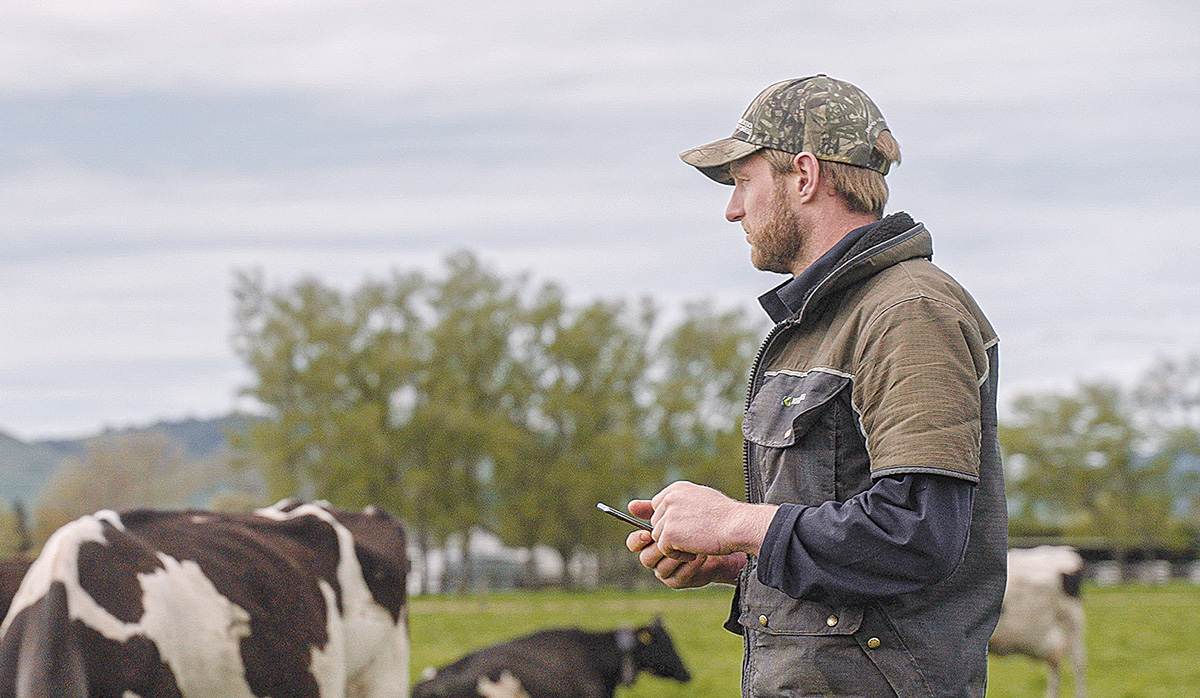Meadow Fresh launches fantasy sports league powered by real cows
Meadow Fresh has created the world's first fantasy sports league powered by real cows.
 Halter says the $85m will go directly towards delivering a system that helps farmers run more productive and sustainable operations.
Halter says the $85m will go directly towards delivering a system that helps farmers run more productive and sustainable operations.
Cow collar technology maker Halter has raised $85 million from an impressive list of investors from around the globe.
The Series C funding, led by Bessemer Venture Partners, who join existing investors DCVC, Blackbird, Promus Ventures, Rocket Lab's Peter Beck and Icehouse ventures.
Halter says Bessemer, a Tier 1 US-based venture capital firm with a global investment team, is renowned for backing transformational companies, including LinkedIn, RocketLab and Pinterest.
It claims, despite a slowdown in capital markets, investors were attracted to Halter's groundbreaking technology that enables more efficient farming.
Halter enables farmers to remotely shift, virtually fence, and proactively monitor their cows' health and behaviour. The company says its world-first system is supporting farmers to combat labour challenges, lift milk production while lowering inputs, and enable 24/7 monitoring of the health of their cows.
Halter chief executive Craig Piggott says the Series C capital raise will accelerate the value Halter delivers to customers.
"Our number one priority is investing in our farmers.
"This money will go directly towards delivering a system that helps farmers run more productive and sustainable operations. Historically, running a sustainable farming operation has been at the expense of production."
Piggott says Halter farmers can achieve both.
Southland farmer Peter Templeton says Halter saves him over 2.5 hours a day just getting cows to the shed.
"We're also up 10k in milk solids and have significantly reduced the amount of nitrogen we use.
"Plus, the farming team is happier, there's less fatigue, we are sharper at decision-making, and we have more accurate grazing outcomes. Halter has fundamentally changed the way we farm."
Tess Hatch, partner at Bessemer Venture Partners, says Halter revolutionises livestock farms, enabling farmers to break free from the time-intensive constraints of conventional farming.
 |
|---|
|
Halter enables farmers to remotely shift, virtually fence, and proactively monitor their cows' health and behaviour. |
"The company's suite of SaaS products manages everything from pasture grazing and livestock movements to animal health, ultimately reducing labour costs and increasing revenue, while at the same time decreasing farm emissions," says Hatch.
Halter, founded in 2016 by Piggott, is made up of a diverse team, all driven to unlock a more productive and sustainable future of farming.
Over the last seven years, the team has grown to over 180 talented and passionate engineers, data scientists, farmers, designers and business people.
Halter says it is deploying onto new farms daily across New Zealand. Collars are leased under a per-cow subscription model based on farmers' required features. Halter retains ownership of the collars and therefore takes responsibility for their maintenance.
Horticulture New Zealand (HortNZ) has added its perspective to numerous primary sector voices urging the Government to strengthen its draft legislation to replace the Resource Management Act (RMA).
The Commerce Commission has finalised new information disclosure requirements for local councils and water organisations that deliver water supply and wastewater services.
Beef + Lamb NZ (B+LNZ) is calling for significant changes to the Government’s reforms to the Resource Management Act (RMA).
NZPork says the Government needs to strengthen its proposed planning laws to ensure New Zealand's pig farmers can continue to produce pork.
Good news for kiwifruit growers - a record crop with forecast per hectare returns at record levels for all fruit categories for the 2025-26 season.
As guests gathered on what is known as the Speaker's Lawn - a beautifully manicured patch of grass behind the main buildings of Parliament - to mingle and enjoy a lamb chop to celebrate National Lamb Day, the mood was very much upbeat.
OPINION: Staying with politics, with less than nine months to go before the general elections, there’s confusion in the Labour…
OPINION: Winston Peters' tirade against the free trade deal stitched with India may not be all political posturing by the…